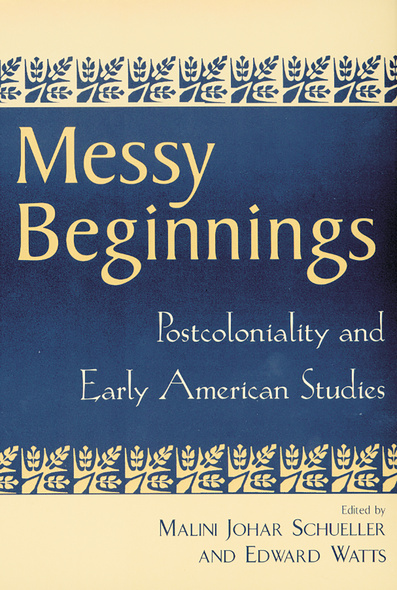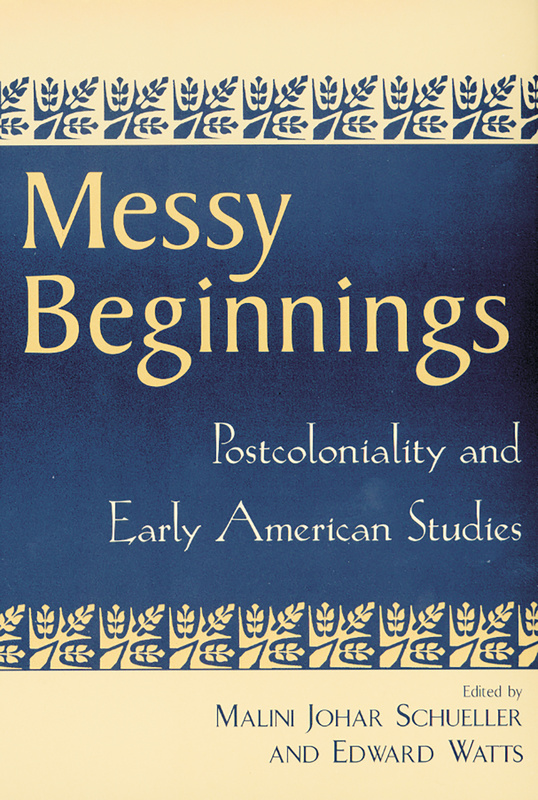Messy Beginnings
Postcoloniality and Early American Studies
When exploring the links between America and postcolonialism, scholars tend to think either in terms of contemporary multiculturalism, or of imperialism since 1898. This narrow view has left more than the two prior centuries of colonizing literary and political culture unexamined.
Messy Beginnings challenges the idea of early America’s immunity from issues of imperialism, that its history is not as “clean” as European colonialism. By addressing the literature ranging from the diaries of American women missionaries in the Middle East to the work of Benjamin Franklin and Nathaniel Hawthorne, and through appraisals of key postcolonial theorists such as Edward Said, Gayatri Spivak, and Homi Bhabha, the contributors to this volume explore the applicability of their models to early American culture.
Messy Beginnings argues against the simple concept that the colonization of what became the United States was a confrontation between European culture and the “other.” Contributors examine the formation of America through the messy or unstable negotiations of the idea of “nation.”
The essays forcefully show that the development of “Americanness” was a raced and classed phenomenon, achieved through a complex series of violent encounters, legal maneuvers, and political compromises. The complexity of early American colonization, where there was not one coherent “nation” to conquer, contradicts the simple label of imperialism used in other lands. The unique approach of Messy Beginnings will reshape both pre-conceived notions of postcolonialism, and how postcolonialists think about the development of the American nation.
Seeing with Ezekeil's eyes: Indian "resurrection" in transatlantic colonial writings / Kristina Bross
Casualties of the rod: rebelling children, disciplining Indians, and the critique of colonial authority in Puritan New England / Anna Mae Duane
"If Indians can have treaties, why cannot we have one too?": the whiskey rebellion and the colonization of the West / Edward Watts
Colonial planter to American farmer: South, nation, and decolonization in Crèvecoeur / Jennifer Rae Greeson
Hawthorne's desert: "wakefield" and the imagination of colonial space / Geoffrey Sanborn
The periphery within: internal colonialism and the rhetoric of U.S. nation building / Michelle Burnham
Nation, missionary women, and the race of true womanhood / Malini Johar Schueller
Brigands and nuns: the vernacular sociology of collectivity after the Haitian revolution / Michael Drexler
Turning identity upside down: Benjamin Franklin's antipodean cosmopolitanism / Jim Egan
"The science of lying" / David S. Shields
Colonization, Black freemasonry, and the rehabilitation of Africa / Joanna Brooks





